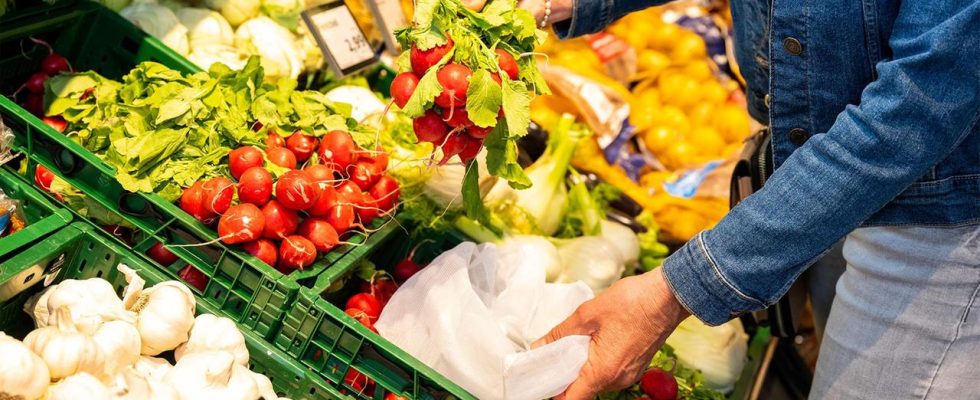Price pressure has eased, particularly for food and energy. This causes the inflation rate to fall further. However, there are exceptions: certain products continue to rise in price.
Cheaper food is further depressing inflation in Germany. In March, prices increased by a total of 2.2 percent compared to March of the previous year. This was announced by the Federal Statistical Office. The price situation is easing more and more, especially for food and energy. In February, inflation was 2.5 percent. Compared to the previous month of February, consumer prices rose by a slight 0.4 percent.
Bucking the trend: olive oil and confectionery
For the first time since February 2015, food was cheaper than a year earlier – prices fell by 0.7 percent compared to March 2023. For consumers, this was particularly noticeable for fresh vegetables, which were around 20 percent cheaper. Price pressure also fell for dairy products.
However, some food prices rose against the trend. Fish and seafood prices rose by almost one percent. Sugar, jam, honey and other confectionery were well above the overall price increase with a price increase of more than eight percent. The prices of fruit and bread also rose faster than the inflation rate.
The price increase for olive oil is still enormous – it rose by around 54 percent.
Cheaper energy, expensive district heating
Energy prices in March were 2.7 percent lower than in the same month last year. And this despite the fact that, on the one hand, the federal government’s price caps for energy products were removed in January and, on the other hand, the CO2 price for fossil fuels such as fuels, heating oil and natural gas has been increased since the beginning of the year.
Federal statisticians have therefore seen consistent declines in energy prices since January – this is dampening the development of inflation in Germany. In detail, household energy became cheaper by 4.6 percent, and consumers were also able to buy solid fuel such as wood and pellets more cheaply. Natural gas and electricity prices also fell.
District heating has become much more expensive. Compared to the previous year, prices rose by almost 21 percent. The price increase for mineral oil products was moderate.
Core inflation continues to be an issue
The so-called core inflation – i.e. inflation excluding energy and food – was 3.3 percent in March. Central bankers in particular look at this rate when making their interest rate decisions.
The European Central Bank recently left key interest rates unchanged. The deposit interest that banks receive for parked funds remains four percent. Observers are now expecting the first interest rate cut in June. The ECB is aiming for an inflation rate of two percent in the medium term.
No all-clear
Despite the current inflation data, economists are not yet giving the all-clear. Oil prices have recently risen significantly on world markets in view of the ongoing tensions in the Middle East. Drivers also experienced this at German gas stations.
In addition, the VAT rate on gas and district heating rose from a temporary seven percent to the original rate of 19 percent, making these products more expensive. In the course of the many collective bargaining negotiations in Germany, economists also expect that wage increases could make services even more expensive in the future.

